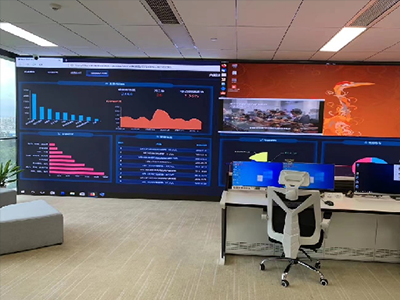ERP系统 & MES 生产管理系统
10万用户实施案例,ERP 系统实现微信、销售、库存、生产、财务、人资、办公等一体化管理
The Future Trends and Innovative Directions of Enterprise MES Systems
Manufacturing Execution Systems (MES) play a crucial role in optimizing production processes, enhancing efficiency, and enabling data-driven decision-making in modern industries. As technology continues to advance rapidly, the future development of enterprise MES systems is poised for exciting innovations and transformative trends that will shape the way businesses operate and compete in the global market.
The Rise of Industry 4.0 and Smart Manufacturing
In the era of Industry 4.0, MES systems are evolving to support interconnected smart factories where machines, systems, and processes communicate seamlessly. The integration of IoT devices, AI, and machine learning capabilities into MES platforms enables real-time monitoring, predictive maintenance, and adaptive manufacturing strategies.
Cloud-Based Solutions for Scalability and Flexibility
The shift towards cloud-based MES solutions provides manufacturers with greater scalability, flexibility, and accessibility. Cloud computing allows for easy deployment, updates, and integration with other enterprise systems, fostering agility and cost-effectiveness in operations.
Enhanced Data Analytics and Business Intelligence
Future MES systems will focus on advanced data analytics and business intelligence tools to derive actionable insights from vast amounts of production data. By leveraging predictive analytics, machine learning algorithms, and digital twins, manufacturers can optimize processes, reduce downtime, and improve overall productivity.
Embracing Cyber-Physical Systems and Digital Twins
The convergence of physical manufacturing processes with digital technologies like digital twins enables virtual representations of production systems. MES systems will increasingly utilize digital twins to simulate, analyze, and optimize operations, leading to improved quality control and resource utilization.
Integration with Supply Chain Management
To achieve end-to-end visibility and synchronization across the supply chain, future MES systems will deepen their integration with supply chain management software. This seamless connectivity enables demand forecasting, inventory management, and production planning to align efficiently with market demands and customer preferences.
Focus on Cybersecurity and Data Privacy
As MES systems become more interconnected and data-intensive, cybersecurity and data privacy will be paramount. Future developments will prioritize robust security measures, encryption protocols, and compliance standards to safeguard sensitive information and prevent cyber threats or data breaches.
Innovating Towards a Connected and Intelligent Manufacturing Landscape
In conclusion, the future of enterprise MES systems is heading towards a connected, intelligent, and data-driven manufacturing landscape. By embracing Industry 4.0 technologies, cloud-based solutions, advanced analytics, digital twins, supply chain integration, and cybersecurity best practices, businesses can unlock new levels of efficiency, productivity, and competitiveness in the evolving market environment. As organizations continue to invest in innovative MES solutions, they will position themselves at the forefront of the fourth industrial revolution, driving sustainable growth and differentiation in the global economy.












 咨询顾问
咨询顾问